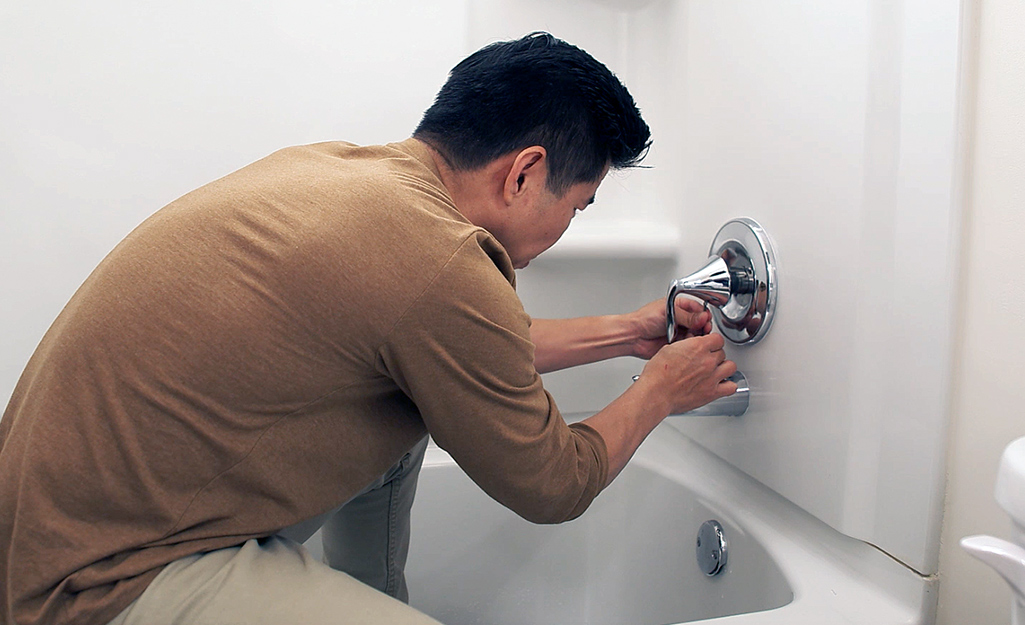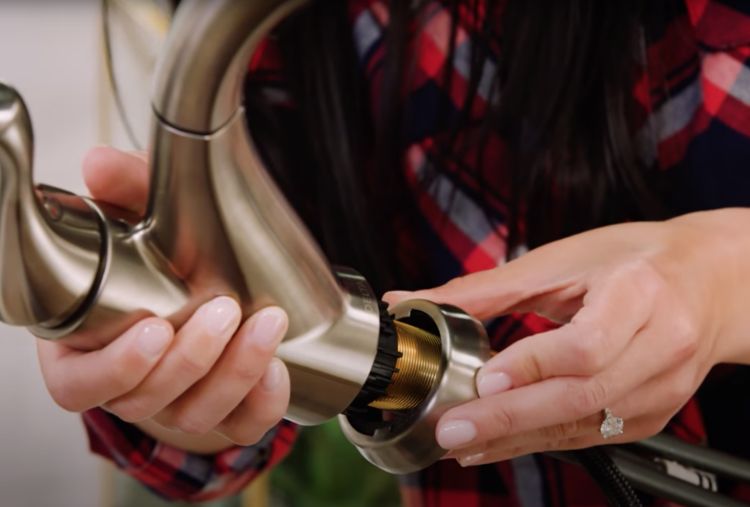Listed here on the next paragraphs you can discover some outstanding details related to What Causes Leaky Faucets & How To Fix Them.

Trickling taps could look like a small trouble, yet their effect goes beyond just the aggravation of the audio. From drainage to incurring unnecessary economic prices and wellness dangers, overlooking a leaking faucet can result in numerous consequences. In this short article, we'll look into why it's vital to address this common household concern immediately and efficiently.
Wastefulness of Water
Environmental Influence
Leaking taps contribute dramatically to water wastage. According to the Environmental Protection Agency (EPA), a solitary tap dripping at one drip per second can throw away greater than 3,000 gallons of water annually. This not just strains water resources but also influences environments and wildlife based on them.
Step-by-Step Guide to Repairing a Dripping Tap
Devices Called for
Prior to attempting to take care of a trickling faucet, collect the essential devices, including an adjustable wrench, screwdrivers, substitute components (such as washing machines or cartridges), and plumber's tape.
Common Tap Issues and Their Solutions
Determine the kind of faucet and the particular problem triggering the drip. Common issues include worn-out washing machines, corroded valve seats, or malfunctioning O-rings. Refer to producer instructions or online tutorials for step-by-step guidance on repairs.
Financial Expenses
Boosted Water Costs
Beyond the ecological effect, leaking faucets can blow up water expenses substantially. The collected wastefulness in time converts right into greater energy expenditures, which could have been stayed clear of with prompt repairs.
Possible Property Damages
Furthermore, extended leaking can bring about damage to components and surfaces bordering the faucet. Water accumulation can cause staining, rust, and also architectural concerns if left ignored, leading to additional repair service prices.
Health Problems
Mold and Mold Development
The constant existence of moisture from a leaking tap produces an ideal setting for mold and mildew and mold growth. These fungi not just endanger indoor air quality however likewise position wellness threats, particularly for people with respiratory system problems or allergic reactions.
Waterborne Illness
Stationary water in dripping taps can end up being a breeding place for bacteria and other virus, raising the risk of waterborne illness. Contaminants such as Legionella germs prosper in stagnant water, possibly bring about significant illnesses when consumed or inhaled.
DIY vs. Expert Repair service
Benefits and drawbacks of Do It Yourself Repair Service
While some might try to take care of a leaking tap themselves, do it yourself repair work include their own set of difficulties. Without proper expertise and tools, do it yourself attempts can worsen the concern or result in incomplete fixings, extending the problem.
Advantages of Working With a Specialist Plumber
Working with an expert plumber makes sure that the underlying root cause of the trickling tap is attended to properly. Plumbing technicians have the knowledge and tools to diagnose and fix faucet issues successfully, conserving time and reducing the threat of more damage.
Environmental Responsibility
Individual Contribution to Conservation
Taking duty for repairing trickling taps straightens with broader efforts toward water preservation and ecological sustainability. Every person's activities jointly make a substantial impact on protecting priceless resources.
Sustainable Living Practices
By focusing on punctual repairs and adopting water-saving practices, people add to sustainable living practices that profit both existing and future generations.
Preventive Measures
Normal Maintenance Tips
To prevent dripping taps, carry out routine upkeep such as cleaning up aerators, checking for leaks, and replacing worn-out parts quickly. Furthermore, take into consideration mounting water-saving devices or updating to a lot more reliable components.
Significance of Prompt Services
Dealing with leaking taps as quickly as they're seen stops further water wastefulness and possible damages, ultimately conserving both water and cash in the future.
Effect On Property Value
Understanding of Well-Maintained Residential Property
Preserving a property in good condition, including dealing with maintenance concerns like leaking faucets, enhances its viewed worth and worth among prospective buyers or occupants.
Impact on Resale Worth
Characteristics with properly maintained plumbing components, including taps, command higher resale worths in the property market. Attending to dripping faucets can add to a positive perception throughout home assessments and negotiations.
Verdict
Attending to a dripping tap goes beyond mere ease; it's a vital action toward saving water, decreasing financial costs, and protecting wellness and home. Whether via DIY fixings or expert assistance, taking action to fix dripping taps is a little yet impactful means to advertise liable stewardship of resources and contribute to a healthier, a lot more sustainable future.
How to Fix a Leaky Faucet: Step-by-Step Repair Guide
A leaky faucet may seem like a simple annoyance, but if it's not fixed promptly, that leak could cost hundreds to potentially thousands. From water damage to mold, mildew, and high water bills, even a tiny leak can be catastrophic if left unattended. Damage like this can even affect the overall value of your home, so it's important to take the right approach for leaky faucet repair. You may need the help of a plumber in some cases, but we've got a few tips you can try on how to fix a leaky faucet before calling the pros.
Four Faucet Types
When you're learning how to fix a leaky faucet, the first step is knowing what kind of faucet you're working with! There are four common types.
Cartridge Faucets
Cartridge faucets come in one- or two-handled varieties. In one-handled cartridge faucets, hot and cold water combines in a single cartridge. In the two-handled versions, hot and cold water are controlled separately and mixed in the faucet.
Ball Faucets
Ball faucets have a single lever you push up and down to adjust the pressure and rotate to change the temperature. A slotted metal ball controls the amount of water allowed into the spout.
Compression Washer Faucets
They're the oldest type of faucet, but they're still used in many homes — especially older ones. Compression faucets have two separate handles that, when turned, raise or lower the washer that seals a water valve. This valve stops water from flowing through the faucet when it is turned off.
Disc Faucets
Disc faucets rarely need to be repaired due to their maintenance-free design. The water flow is controlled by two discs — the upper one raises and lowers against a fixed lower disc, creating a watertight seal. If your disc faucet starts leaking, you may need to replace the seals or clean residue buildup from the inlets.
Fixing a Leaky Faucet
Step 1: Turn Off the Water
Whether you're learning how to fix a leaky bathtub faucet or how to fix a leaky kitchen faucet, always turn off the water supply to your working area when you're fixing a leak. The last thing you want is a flood added to your list of things to fix.
Look for the shutoff valves below your sink or around the tub and turn them clockwise to stop the water flow. If your faucet doesn't have shutoff valves, you may need to turn off the water for the whole house. Check to make sure it's off by turning the faucet on. If nothing comes out, you're ready to start the repair.
Step 2: Take Apart the Faucet
How you disassemble your faucet depends on the type of fixture you have. You can use a flathead screwdriver to remove the caps on top of the handle or handles for cartridge and compression faucets. Inside, you should see handle screws. Unscrew these with a screwdriver to remove the handle.
Disc- and ball-style faucets will typically have an inlet screw near the handle, and removing that will reveal the interior of the faucet.
Detach the Valve Stem
For cartridge- and compression-style faucets, you'll see the inner valve stem or cartridge once you remove the faucet handles. If you have a compression faucet, unscrew the brass valve stem. If you have a cartridge faucet, pull out the cartridge. If your cartridge has been in place for a while, it may require some tools or extra force to remove it due to mineral deposits.
Examine and Replace Parts
Once you've removed the parts, check them out to confirm what needs to be replaced. You may see corroded rubber washers, O-rings, stems, or cartridges. On a ball-style faucet, check the seats and springs for damage.
If you need to repair a leaky disc faucet, check the inlet and seals on the lower disc.
Once you determine what parts must be replaced, visit your local hardware store. Bring the damaged parts with you to ensure you can purchase the correct components to replace them.
Clean Valves and Faucet Cavity
If you've removed a stem or cartridge, you may notice mineral buildup in the faucet's threads. Use white vinegar to clean the valve seat by soaking it for a few minutes, then scrub it away with a soft toothbrush and rinse with warm water. You can also clean the interior of the faucet in the same way.
Reassemble the Faucet
Once your faucet is cleaned and the required parts have been replaced, it's time to reassemble it. Put the pieces back together and slowly turn the water supply back on. Doing this slowly is crucial because too much initial water pressure can damage the new hardware you've just installed.
https://homewarranty.firstam.com/blog/how-to-fix-leaky-faucet

Do you really like more info about Why Are My Faucets Dripping (And Can I Fix It Myself)?? Give a short review below. We'd be happy to hear your ideas about this blog entry. In hopes to see you back again before long. Do you know anybody else who is excited about the subject? Feel free to share it. Thanks for taking the time to read it.